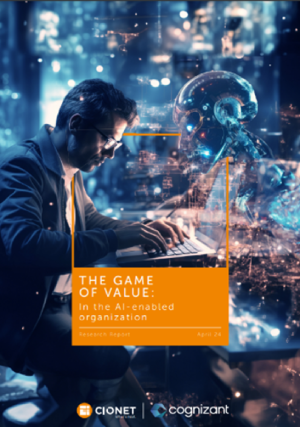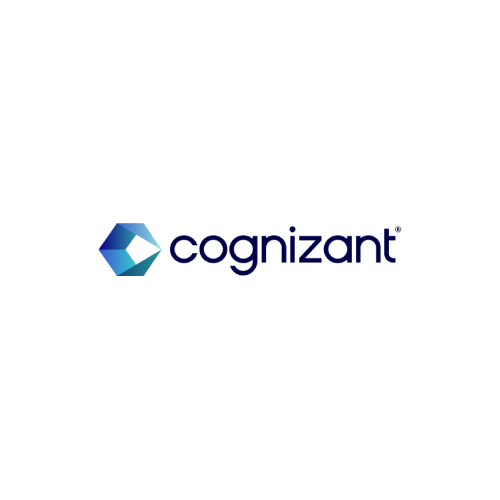Discover industry-specific solutions and expertise.
Solve your toughest A&D challenges with Belcan.
Ignite peak performance and efficiency in your business.
Reimagine your manufacturing competitive advantage.
Accelerate growth with customer-focused solutions.
Our data and AI solutions align with your business outcomes and create impactful results.
Personalize learning experiences with education tech and IT solutions—and make learners feel valued.
Create strategies for product, service and process innovation that deliver new growth.
Meet customer demands for a digital, personalized online insurance experience—while reducing risk.
Digitally transform to empower a more intelligent, agile and high-performing enterprise.
Make business decisions based on real-time contextual data with our digital solutions.
Stay ahead of the competition with the latest tech like IoT, machine learning and blockchain.
Deep industry expertise to propel your business into the future.
Explore Belcan’s flexible, custom-tailored solutions.
Solution to turn isolated AI pilots into production-grade agent networks.
Put AI to work and turn opportunity into value.
Accelerate time to value for industrial edge AI.
Maintain high integrity across the AI lifecycle.
Realize the next frontier of enterprise performance.
Enhance operations, boost efficiency, remove technical debt and modernize apps for the future.
Boost operational efficiency, optimize costs and speed product development.
Transform operations through intelligent orchestration, platform integration and strategic partnerships.
Enable a more secure and value-centered business with proven next-gen solutions.
AI insights to inspire enterprise transformation.
Set your modernization up for success with a flywheel strategy.
Develop the technical capabilities needed to create robust agents.
Bridge the gap between strong AI leadership and business readiness.
Explore the latest in AI in our newsletter released bimonthly.
Dive into our forward-thinking research and uncover new tech and industry trends
Explore the top focus areas that are important to Cognizant and our clients.
Explore how our expertise can help you sense opportunities sooner and outpace change.
Discover industry-specific solutions and expertise.
Solve your toughest A&D challenges with Belcan.
Ignite peak performance and efficiency in your business.
Reimagine your manufacturing competitive advantage.
Accelerate growth with customer-focused solutions.
Our data and AI solutions align with your business outcomes and create impactful results.
Personalize learning experiences with education tech and IT solutions—and make learners feel valued.
Create strategies for product, service and process innovation that deliver new growth.
Meet customer demands for a digital, personalized online insurance experience—while reducing risk.
Digitally transform to empower a more intelligent, agile and high-performing enterprise.
Make business decisions based on real-time contextual data with our digital solutions.
Stay ahead of the competition with the latest tech like IoT, machine learning and blockchain.
Deep industry expertise to propel your business into the future.
Explore Belcan’s flexible, custom-tailored solutions.
Solution to turn isolated AI pilots into production-grade agent networks.
Put AI to work and turn opportunity into value.
Accelerate time to value for industrial edge AI.
Maintain high integrity across the AI lifecycle.
Realize the next frontier of enterprise performance.
Solution to turn isolated AI pilots into production-grade agent networks.
Enhance operations, boost efficiency, remove technical debt and modernize apps for the future.
Connect your processes, people and insights across the enterprise with AI-enabled IPA.
Turn big visions into practical realities with expertise that takes you further.
Boost operational efficiency, optimize costs and speed product development.
Transform operations through intelligent orchestration, platform integration and strategic partnerships.
Enable a more secure and value-centered business with proven next-gen solutions.
AI insights to inspire enterprise transformation.
Set your modernization up for success with a flywheel strategy.
Develop the technical capabilities needed to create robust agents.
Bridge the gap between strong AI leadership and business readiness.
Explore the latest in AI in our newsletter released bimonthly.
Keep up with the trends shaping the future of business—and stay ahead in a fast-changing world.
Dive into our forward-thinking research and uncover new tech and industry trends
Explore the top focus areas that are important to Cognizant and our clients.
Explore how our expertise can help you sense opportunities sooner and outpace change.
The Northern European newsletters deliver quarterly industry insights to help your business adapt, evolve, and respond—as if on intuition
Written by Cognizant Benelux
31 July, 2024

Share
3 mins
Making sure AI is integrated strategically within an organization is becoming the differentiator between businesses of the future; a solid GenAI strategy will separate the successful companies from those that fail to adapt.
Cognizant, in collaboration with CIONET, has produced a comprehensive research report titled "The game of value: In the AI-enabled organization." Based on interviews of 30 CIOs, CDOs, and digital leaders across Belgium and Netherlands, this report delves into the multifaceted process of identifying and investing in AI projects that yield the highest value.
The research, guided by Pierre Marchand, Cognizant’s Chief Data Strategist, emphasizes the critical alignment of business and IT strategies. Utilizing frameworks like objectives and key results (OKRs), organizations can bridge the gap between strategic business objectives and IT initiatives.
Organizations face several primary challenges when implementing generative AI. Ensuring data quality and availability is crucial, as Gen AI systems require large volumes of high-quality data. This involves implementing robust data governance frameworks, using data cleaning and preprocessing techniques, and establishing clear data management policies.
Bridging the gap
Navigating generative AI integration with existing processes and IT infrastructure can be complex and resource intensive. Here, thorough planning and collaboration between IT and business units are crucial, as well as the use of middleware and API integrations to facilitate interoperability and seamless data flow.
Ethics and compliance
Ethical and compliance issues are also significant, requiring the establishment of an ethical AI board to oversee AI initiatives and ensure alignment with ethical standards, along with regular audits for compliance with legal and regulatory requirements.
Skills and expertise
To manage and develop gen AI solutions, employees need to be invested in by getting them trained and upskilled. We advise collaborating with external experts, hiring specialized talent, and encouraging continuous learning and professional development.
Cultural resistance and change management
Employees may resist adopting Gen AI due to fears of job displacement or reluctance to change established workflows. Developing a comprehensive change management strategy that includes clear communication about the benefits of Gen AI, involving employees in the implementation process, and providing support and training can help ease the transition.
Cost and resource allocation
Implementing Gen AI can be costly. Organizations can address this by starting with small, high-impact pilot projects to demonstrate value and build a business case for further investment, using the value of investments (VOI) framework to prioritize projects that offer the greatest strategic and financial benefits.
Scalability and maintenance
Scaling Gen AI solutions from pilot projects to enterprise-wide deployment can be challenging, as can ongoing maintenance and updates. Planning for scalability from the outset, using modular and flexible architectures, and establishing processes for regular maintenance, monitoring, and updating of AI systems are essential.
Bias and fairness
Finally, bias and fairness are critical issues, as Gen AI models can perpetuate or amplify biases present in the training data, leading to unfair or discriminatory outcomes. Implementing bias detection and mitigation strategies throughout the AI development lifecycle, using diverse and representative datasets, and regularly auditing AI outputs for fairness and equity are necessary to address these challenges.
The game of value
To learn more, read our comprehensive research report, "The game of value: In the AI-enabled organization."

